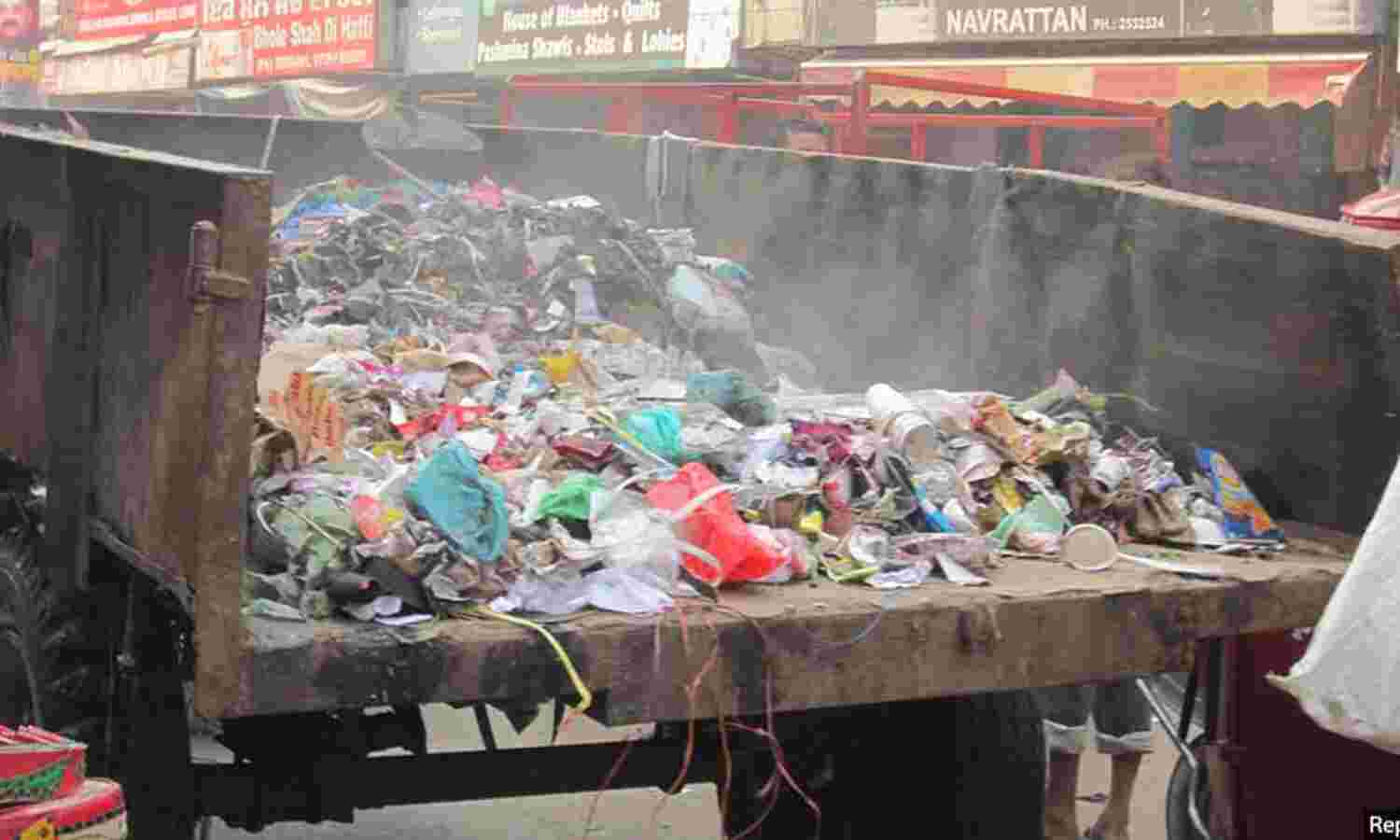Smaller Indian Cities Better At Managing Waste Than Larger Ones

New Delhi: Some of India’s smallest cities, such as Vengurla and Panchgani in Maharashtra, and mid-level cities, such as Alappuzha and Thiruvananthapuram in Kerala, are more efficient in managing waste compared to similarly populated or larger cities, according to a recently released report on 20 cities across 10 states.
Parts of the National Capital Region--East Delhi, South Delhi and Gurugram--were among the worst, according to the report released on June 7, 2018, by the Delhi-based Centre for Science and Environment (CSE), an advocacy.
Among cities with a million people or more, Indore and Mysuru were the best performers.
These cities are part of a forum called ‘Forum of Cities that Segregate’, launched by CSE to work with cities to promote and implement source-segregation and decentralised model of waste management.
More than 90% of India does not have a proper waste disposal system, IndiaSpend reported on May 12, 2017.
Waste management is a big problem in urban India as it generates 62 million tonne of solid waste annually, The Financial Express reported on August 2, 2016. That is the equivalent of 6.2 million truckloads (at 10 tonnes per truck)--or nearly 17,000 truckloads per day.
Only 75-80% of waste generated in Indian cities is collected by municipal bodies, according to this 2016 environment ministry note.
Only 24% of 143,000 tonne per day (TPD) of solid waste generated nationwide is processed, The Times Of India reported on March 11, 2018.
To assess the performance, cities were grouped under three different categories--small (less than 100,000 million population), mid-size (100,000 to 1 million population) and million-plus.
For 2017-18, the cities were scored on their performance on different parameters, including segregation at source, collection, transportation, waste processing, adoption of decentralised systems, inclusion of the informal sector and the enforcement of solid waste management bye-laws and plastic waste management rules.
Better transportation but less processing
Most of the forum cities, as we mentioned, have efficient collection and transportation systems, the report said. But only a few cities have worked to ensure minimum disposal in landfills and maximum resource utilisation.
Only four of the 20 forum cities assessed segregate more than 90% of their garbage: Indore in Madhya Pradesh, Panchgani and Vengurla in Maharashtra, and Alappuzha in Kerala.
South Delhi Municipal Corporation (SDMC), East Delhi Municipal Corporation (EDMC), Patna, Gaya, Imphal and Gurugram fail in segregate ess than 33% of their waste.
Six forum cities--Indore, Mysuru, Alappuzha, Panchgani, Balaghat and Vengurla--process more than 90% of waste. Four forum process more than have 90%: Panchgani, Vengurla, Indore and Alappuzha.
SDMC and EDMC process 33-75% of wet and dry waste. Gurugram processes less than 33% of the wet and dry waste it generates in a year.
In larger regions, such as NCR, unprocessed waste piling up in landfills is polluting underground water, The Times of India reported on June 9, 2018.
| Cities' Score On The Basis Of Disposal Percentage | |
|---|---|
| Disposal Percentage | Cities |
| >75 % | Patna, Gaya, Gurugram |
| 50 -75 % | Bengaluru, Imphal, Bhopal, Muzaffarpur |
| 33-50 % | SDMC, EDMC, Vaijapur, Greater Hyderabad |
| 10-33 % | Mysuru, Balaghat, Bobbili, Gangtok, Thiruvananthapuram, Indore |
| <10% | Panchgani, Vengurla, Alappuzha |
Source: Centre For Science And Environment
A majority of the cities in Survekshan 2018, an annual survey by the central government on city cleanliness, are ‘visibly’ clean but many do not have appropriate systems for processing and disposal of waste. They continue to collect waste and dump it in under-functional processing sites, landfills or dump sites, said Chandra Bhushan, deputy director general, CSE.
Cities must shift focus towards creating end-to-end systems to support segregation with effective processing and disposal mechanisms. Only then will ranking systems work in changing the solid waste management scenario in the country, added Bhushan.
Smaller cities adopting aspirational ways of managing waste
Smaller cities are putting more effort in managing their waste, the report said.
Thiruvananthapuram and Alappuzha have invested in creating decentralised systems for waste management. Some of the cities are also promoting decentralised processing at household level.
Some forum cities such as Panchgani, Vengurla and Alappuzha have created systems to adopt a zero landfill model. Vengurla has no dump site or landfill.
“It is clear in our assessment that smaller cities have been more successful in implementing source-segregation compared to bigger cities,” said Swati Singh Sambyal, programme manager, waste management unit, CSE. “They have also been innovative in their approach and hence have performed well.”
Enforcement of bye-laws remains a challenge
Only a few forum cities have enacted bye-laws as per the SWM Rules, 2016--Indore, SDMC, EDMC, Muzaffarpur, Vengurla and Bobbili. The enforcement of the bye-laws remains a major challenge. Only Indore and Vengurla have ensured some level of enforcement of the bye-laws, the report said.
(Tripathi is a principal correspondent with IndiaSpend.)
We welcome feedback. Please write to respond@indiaspend.org. We reserve the right to edit responses for language and grammar.


